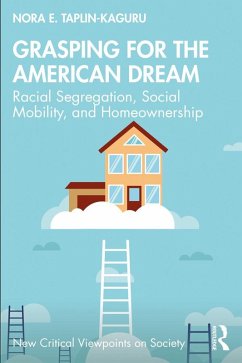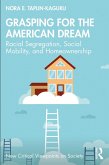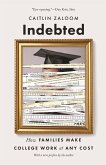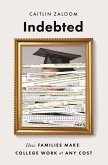Working-class African Americans remained committed to homeownership, in part because of the moral status attached to achieving this goal. For African American homebuyers, success at the American Dream of homeownership is directly related to the long-standing dream of equality. For the aspiring homebuyers in this study, delayed homeownership was a practical problem for the same reasons, but they also experienced this as a personal failing, due to the strong cultural expectation in the United States that homeownership is a milestone that middle-class adults must achieve. Furthermore, despite using perfectly reasonable housing search strategies to locate homes in stable or improving racially integrated neighborhoods, the structure of racial segregation limits their agency in housing choices. Ultimately, policy solutions will need to address structural racism broadly and be attuned to the needs of both homeowners and renters.
Dieser Download kann aus rechtlichen Gründen nur mit Rechnungsadresse in A, B, BG, CY, CZ, D, DK, EW, E, FIN, F, GR, HR, H, IRL, I, LT, L, LR, M, NL, PL, P, R, S, SLO, SK ausgeliefert werden.
Maria Krysan, Professor of Sociology, University of Illinois at Chicago, and co-author of Cycle of Segregation: Social Processes and Residential Stratification
"This masterful work of scholarship, written in a graceful and inviting style, builds on exemplary urban studies, such as those by Herb Gans, Karyn Lacy, and Mary Pattillo. It uniquely follows sixty-eight working-class and lower-middle-class African Americans in the Chicago metropolitan area through the process of buying a home, some of whom were not successful. The fine-grained results are enriched by a follow-up survey with thirty-eight of those who made a purchase, and by interviews with several of the former neighbors of the new homeowners. The result is impressive evidence for the endurance of the African American Dream of freedom, equality, and integration against all odds, a dream that ironically makes potential homebuyers 'more vulnerable to exploitation in a structurally racist housing market.' This book, including poignant accounts of how the disappointments in the face of ongoing racial discrimination are dealt with by a determined and resilient group of people, is destined to take its place on the shelf of classic urban studies."
G. William Domhoff, Distinguished Professor Emeritus and Research Professor in Sociology, University of California, Santa Cruz, author of Who Rules America?
"Despite being exploited and abused by the economics and policies of homeownership time and time again, Black Americans continue to uphold homebuying as a core component of their respectability, citizenship, and defiance of racism's setbacks. Nora Taplin-Kaguru fills in so many of the missing pieces of how and why Black homebuyers face these purchasing obstacles and ultimately gives voice to their reasons, their considerations, and how they make sense of a process that has historically marginalized Black communities."
Saida Grundy, Assistant Professor of Sociology and African American studies at Boston University, and the author of the forthcoming Manhood within the Margins: Promise, Peril and Paradox at the Historically Black College for Men.
Grasping for the American Dream will surely encourage lively classroom discussions in American urban sociology, housing, and race relations courses, as well as related fields like urban planning. It is an excellent contribution to the rich literature on working-class African Americans and on Black homeowners, especially in Chicago.
Hilary Silver in Social Forces









